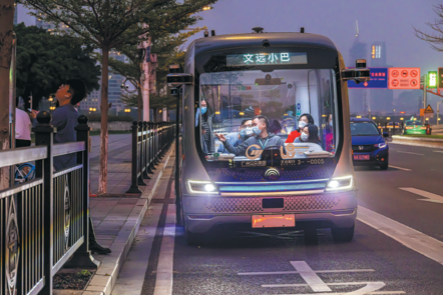AI automation to shake up labor market by 2030


China's labor market must be well-prepared to adapt to challenges brought by the rapid development of artificial intelligence, which is expected to replace 40 million to 50 million full-time jobs in the country within the next 15 years, according to a report released on Wednesday.
The joint China Development Research Foundation and Sequoia Capital China report quoted the estimate from McKinsey Global Institute, saying the technology can help achieve automation in many fields.
By 2030, automation will replace one-fifth of the country's jobs in the manufacturing industry, and if the process of automation accelerates, nearly 100 million workers will need to change their field of work, the report said.
"AI will greatly free humans from repetitive jobs and cultivate creative minds," said Neil Shen, founding and managing partner of Sequoia Capital China. "This means work will shift from being labor-centric to innovation-driven. More talents will devote their time to scientific discovery and technological innovation, and dedicate their efforts to the enrichment of the world."
This is a blessing for jobs featuring creativity, but a curse for employees with repetitive work.
The report noted that by 2027 there will be 9.93 million employees in the Chinese financial industry, but 22 percent of the jobs in banks, 25 percent in the insurance market, and 16 percent in the capital market will be cut because of repetitive work. For the remaining employees, their working time will be reduced by 27 percent owe to AI.
Lu Mai, vice-chairman and secretary-general of the CDRF, said the country must be prepared to adapt to the changes and meet the challenges.
"If we decide to follow the path toward a future with AI, we must emphasize human capital investment," Lu said.
"Currently, China's early childhood parenting and preschool education lags behind global standards, and China's vocational education also needs further improvement. All of these shortcomings will hinder China's labor market from transitioning to an AI-led future."
The report said investing in human capital is and will always be a major pathway to job creation in the AI era. To this end, more efforts need to be put into building a wider understanding of AI - the technology should be applied first in sectors needing the most economic and social investment, such as education, healthcare and other mid to high-end service sectors, it said.
According to a report on AI in 2017, China's core AI industry scale reached $5.6 billion in 2017, representing more than 15 percent of the global total. By 2020, that scale will surpass $22 billion, with a 65 percent annual growth rate, higher than the global average, which is 60 percent.
Today's Top News
- Biden administration trying to straitjacket its successor into carrying on its China policy: China Daily editorial
- Ceasefire raises hopes of permanent end to war
- Beijing asks US to stop smears after Rubio calls China 'biggest threat'
- Consistent progress seen in environmental protection
- China welcomes Israel-Hamas ceasefire
- China welcomes Gaza ceasefire deal: Spokesman






























